Discovering The Best High-Protein Vegan Diet To Power Your Day
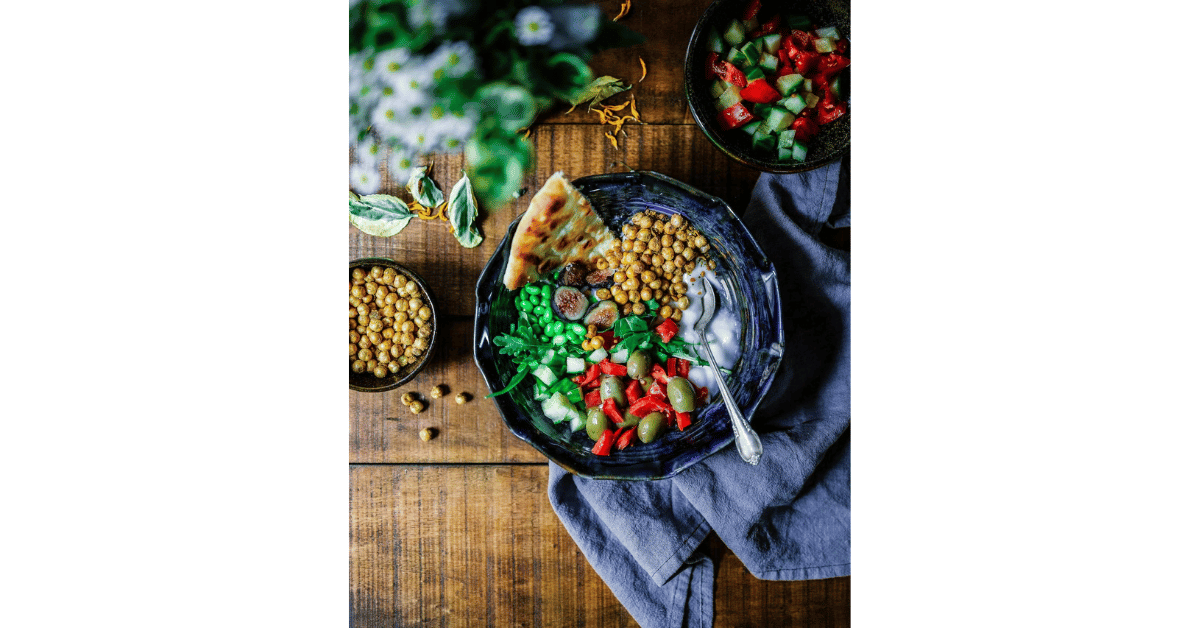
Introduction
Proteins!
Have you noticed the obsession people have with protein? You have not eaten enough without proteins. And, for that matter, you must eat plenty of them!
Those eating plant-based foods get questions about needing more proteins. The question is always – where do vegans get their proteins?
Different diets are exploding all over. And questions about proteins abound.
A new phenomenon is taking the world by storm. The phenomenon of the very high protein vegan diet.
This revolution is challenging conventional notions about plant-based diets and protein intake.
In this article, we are to look at the best high-protein vegan diet.
How much protein do we need?
We’ll also be answering the question of what the best plant-based resources of proteins are.
What are the tips for athletes following a high-protein vegan diet?
If there are deficiencies, what can one on a vegan diet do?
What, then, is this macronutrient called protein?
What is Protein?
It will help us to understand what protein is. When looking at the best high-protein vegan diet, we will better understand how much protein one needs to consume.
Proteins are complex molecules that play critical bodily roles. It is an essential nutrient for building, maintaining, and repairing almost all tissues in your body.
These include your bones, muscles, blood, hair, nails, and organs.
They do most of the work in cells. Proteins help to structure, function, and regulate the body’s tissues and organs.
Protein has up to twenty amino acids. Your body makes 12 of them. The other nine essential amino acids you’ll get from your diet.
Protein, unlike fats and carbohydrates, is not stored by your body. It would be best if you ate proteins daily.
The Power of Plant-Based Protein
Plant-based protein is an excellent source of nutrition.
Experts say plant-based protein can help you reach your goals if you eat various and consume all the essential amino acids.
Plant-based proteins also lower saturated fat, are easier to digest and are free of antibiotics and harmful bacteria.
When choosing plant-based proteins, you get a dietary impact beyond protein quality.
What are the Best Vegan Protein Sources?
Seeing the power of plant-based proteins. What is the excellent protein source on a plant-based or vegan diet?
Let us debunk the animal protein myth before exploring the best vegan protein sources.
There is a widespread myth that animal foods provide high-quality proteins.
Many plant-based and vegan protein sources contain a lot of health-promoting protein.
The best vegan protein sources in a plant-based diet are beans and legumes.
The meat and dairy industry has almost fooled us all.
If you want adequate proteins, here are some potent plant-based protein sources.
Tempeh
Tempeh is a vegetarian substitute made from whole soybeans. Tempeh undergoes fermentation and has loads of plant protein.
Fermentation may help your body digest and get more nutrients from it.
This fermentation process also gives tempeh a firmer, more meat-like texture.
You can chop up tempeh on a salad or stir-fry with some vegetables.
Organic Extra Firm Tofu
Tofu is from bean curds pressed together like in cheesemaking.
Tofu does not have much taste, but it quickly absorbs the flavour of the prepared ingredients. I can tell you it was not as delicious as I thought when I began eating it. Now it’s my favourite.
Tofu contains iron and nine grams of protein per 100-gram serving.
Use the extra-firm tofu variety in stir-fries, soups, stews, and curries. You can also marinate it in your favourite sauce.
Edamame
Edamame contains 17 grams of protein per one-cup serving. It also contains compounds called isoflavones.
Isoflavones help lower LDL cholesterol and increase HDL cholesterol. Increased HDL cholesterol helps curb the onset of cardiovascular diseases.
Edamame is rich in folate, vitamin K, and fibre. Fibre helps support digestion and regularity.
Lentils
You can include lentils in many meals and an affordable source of protein. Lentils have 18 grams of protein.
You can use lentils in various dishes. These range from fresh salads to hearty soups and spice-infused dahls.
Lentils are also a great source of fibre. They provide over half of your recommended daily fibre intake.
Furthermore, the type of fibre found in lentils feeds the good bacteria in your colon. This good bacterium can help promote a healthy gut.
Lentils may also reduce your chance of having chronic diseases.
Chickpeas
Chickpeas are also known as garbanzo beans. They contain 16 grams of protein.
Garbanzo beans contain protein, dietary fibre, folate, thiamine, pyridoxine, vitamin K, and manganese. Also, copper, phosphorus, iron, magnesium, potassium, calcium, zinc, phytonutrients, phytosterols, and phenolic acid.
Garbanzo beans have seventy per cent soluble and insoluble fibre. Thus, undigested, which helps colon health. Chickpeas contain the powerful antioxidant mineral selenium.
You can add chickpeas to salads and roasted dishes you are making.
Beans
You have another powerful protein giver in beans.
Kidney, black beans, and other beans are staple foods across cultures. Beans contain high amounts of proteins per serving.
Green Peas
Green Peas form a complete protein when combined with grains. It contains vitamins A, K, and C. Green peas contain fibre, minerals, protein, and B-complex vitamins and phytonutrients.
Vitamin K in green peas helps put calcium in the bones.
Phytonutrients in green peas, such as phenolic acid, flavonoids, and carotenoids. These phytonutrients help protect cells from oxidative damage and inflammation. They also help in the prevention of type 2 diabetes and cardiovascular disease.
Lutein in peas helps preserve eyesight.
You need this protein-power plant-based food.
You can use peas in Thai-inspired pea soup and pea-and-avocado guacamole recipes.
Oats
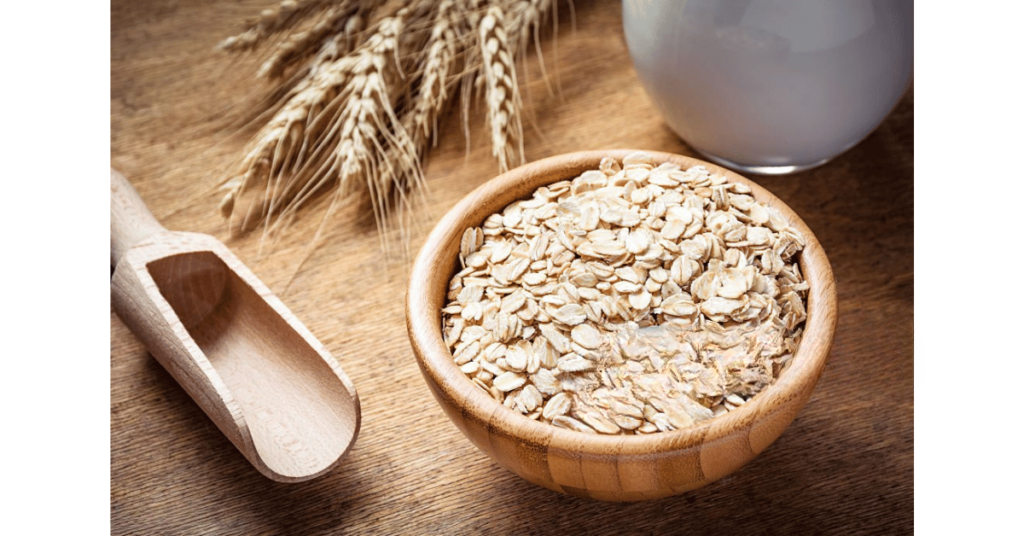
Oats are a preferred protein source for breakfast.
You can add protein to any diet by eating oats.
Forty grams of dry oats provide approximately 5 grams of protein. It gives 4 grams of fibre.
Oats are rich in magnesium, zinc, phosphorus, and folate source.
Oats are not considered a complete protein.
They contain higher-quality protein.
Oats are no longer for breakfast only. You can include them in many recipes ranging from oatmeal to veggie burgers.
Hemp Seeds
Hemp seeds are rich in plant protein and omega-3 fatty acids. They come from the Cannabis sativa plant. Some people associate hemp seeds with the cannabis plant.
Although hemp seeds are less popular than others, nine grams of protein are in hemp seeds.
Hemp seeds contain magnesium, iron, calcium, zinc, and selenium. Moreover, they’re a good source of omega-3 and omega-6 fatty acids in the optimal human ratio.
Chia Seeds
Chia seeds are the superfoods of choice. Chia seeds originate from the Salvia hispanica plant. They boost high protein, approximately 5 grams and 10 grams of fibre, and omega-3 fatty acids.
I am adding chia seeds to my oatmeal. You can also use them in pudding and your smoothies.
Quinoa
Quinoa is a gluten-free grain. They do not grow from grasses like other cereal grains. They are pseudocereals.
Quinoa boos of 8 to 9 grams of protein per 185 grams. They are a complete source of protein.
Wild Rice
Wild rice contains its bran, unlike the other rice.
250 ml of cooked wild rice contains 7 grams of protein, a higher number than any other long-grain rice. Their protein powder is even more than that of brown rice and basmati.
Wild rice also has healthy amounts of fibre, phosphorus, magnesium, manganese, and B vitamins.
Almonds
Almonds are high in healthy fats and other essential ingredients. These ingredients include fibre, magnesium, and vitamins. Almonds contain 8 grams of protein.
You can eat almonds on their own. You can add them to your favourite dish, like oatmeal, as a crunchy addition.
Pistachios
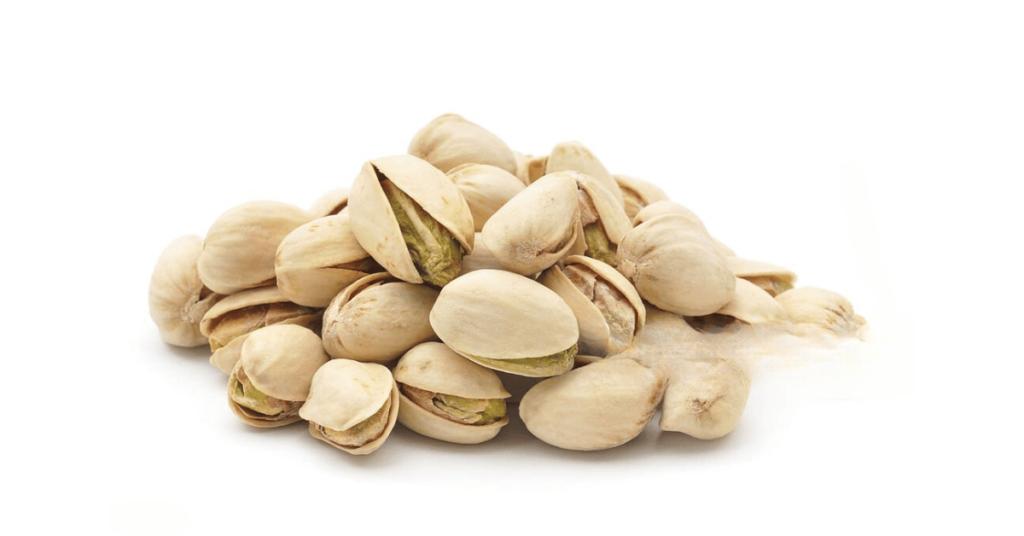
Pistachio nuts belong to the cashew family. They contain protein, fibre, iron, potassium, and copper. Thiamine, pyridoxine, magnesium, phosphorus, vitamins, and phytosterols are also present.
Pumpkin Seeds
Pumpkin seeds, also known as pepitas, are a good source of magnesium, manganese, iron, zinc, and copper.
They are the best source of plant-based omega-3 fatty acids called alpha-linolenic acid (ALA).
250 ml of pumpkin seeds contain 12 grams of protein.
You can eat them as a snack. You can also put them on top of salads and bowls.
Broccoli
Broccoli is the most nutrient-dense food in the world. It contains vitamins C, K, and B vitamins, folate, potassium, iron, manganese, magnesium, phosphorus, and selenium. It is also a surprisingly good source of protein.
It also includes a variety of phytonutrients such as carotenoids, flavonoids, and glucosinolates. Phenolic acids and lignans are in broccoli.
You can make it into soup, salads, or a grain bowl for protein powder.
Sweet Corn
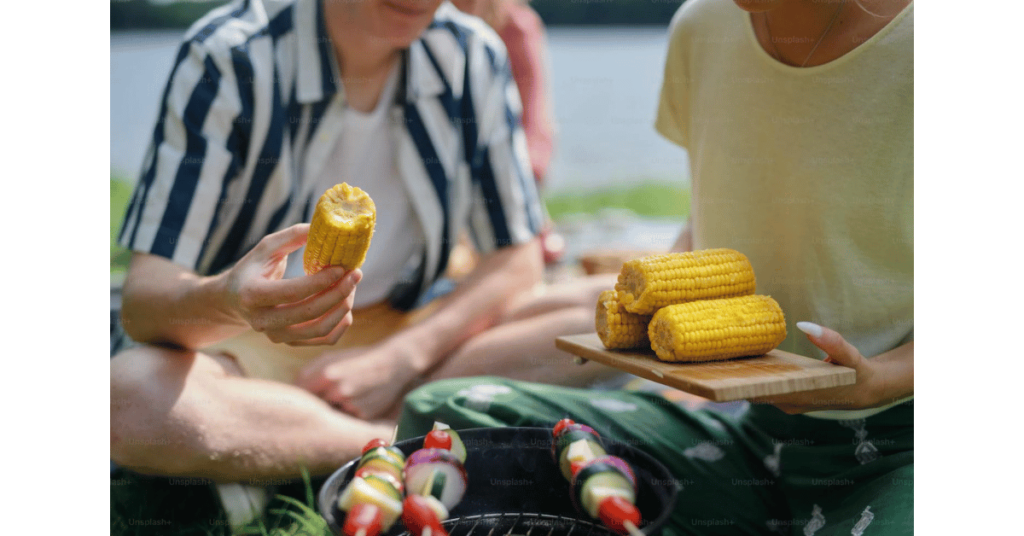
Sweet corn contains 3.9 grams of protein.
Corn (maize) protein has 22 bioactive peptides. These peptides can potentially assist in fighting hypertension, obesity, and oxidative stress.
Seitan
Seitan is a vital source of protein for many vegetarians and vegans. Half a cup serving of seitan gives you 34 grams of protein.
Seitan is from gluten, the main protein in wheat.
Avocado
Avocado contains 4 grams of protein with all the essential amino acids.
Mushrooms
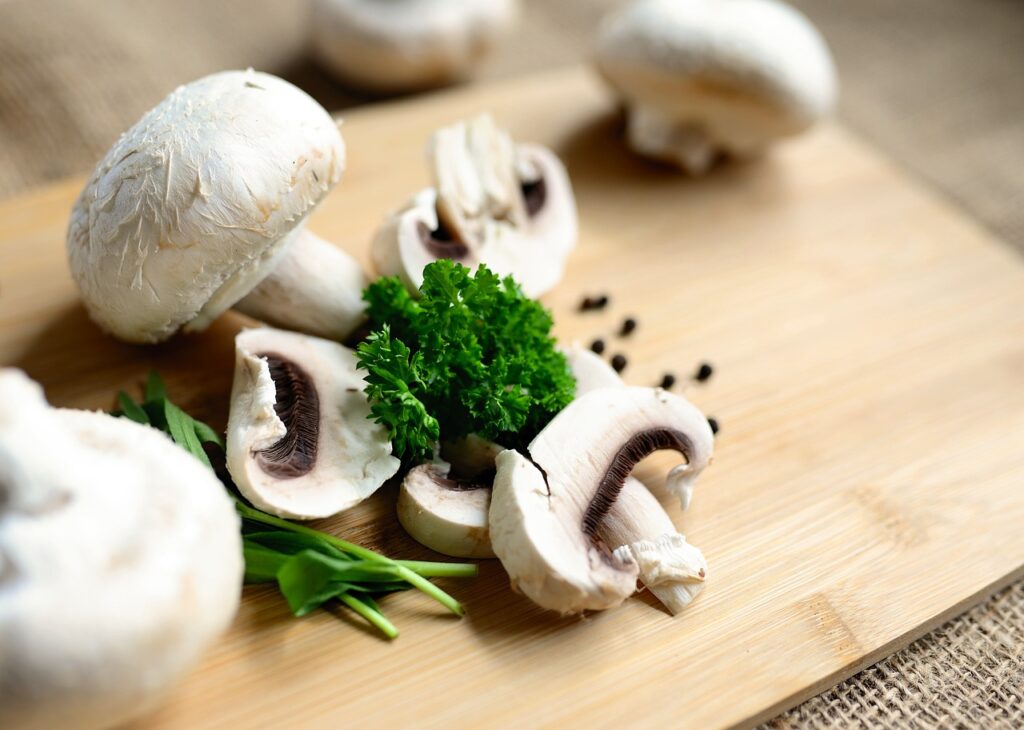
A cup of mushroom gives 3 grams of protein, low calories, and plenty of B vitamins.
Mushrooms are a rare plant source of natural vitamin D.
Nutritional Yeast
Nutritional yeast is Saccharomyces cerevisiae yeast in its deactivated form. It is available as a yellow powder or flakes.
Sixteen grams of nutritional yeast provides 8 grams of protein and 3 grams of fibre.
Because of its cheesy flavour, you can eat it in dishes like mashed potatoes and scrambled tofu.
Is There Adequate Proteins in a Vegan Diet?
Protein is critical for your life.
Enough protein is available in plant-based foods. Yet, many people who turn to plant-based foods concern themselves about how to get enough proteins.
Scientists agree that plant-based protein is the key to optimal health and disease prevention. There are various plant-based protein foods, as mentioned in the previous topic.
Do vegans get less protein? What amount of protein do you need daily?
Protein Requirements for Vegan
Forty-six to seventy-eight grams is the required consumption per day. The higher protein intake of sixty to seventy grams is for older people.
Many individuals are taking in more proteins than necessary.
Protein deficiency is deficient.
Balancing Macronutrients on a Plant-Based Diet
Many people have gone to the extreme of overindulging in proteins.
As a vegan, you must pay attention to your macronutrient balance.
This extremism results from heavy marketing by the meat and dairy industry.
Balancing macronutrients in your vegan diet is a simple task. Instead, you’d see that it’s an achievable and worthwhile endeavour.
Recognize the necessary components and then incorporate them into your meals. Embrace plant-based protein for stronger muscles. And carbs for energy, fats for organ protection and well-being.
Planning and research allow you to play around with various recipes. At the same time, incorporating the macronutrients.
Start balancing those macronutrients today. Balancing your macros will lead you to enjoy a wholesome, satisfying vegan life.
Vegan Meal Planning for High Protein Diet
It would help to have a meal plan as you journey to the best high-protein vegan foods.
A vegan diet can provide enough protein for your health and fitness goals. You can achieve this goal by eating various plant-based foods rich in protein.
Some vegan protein sources include tofu, tempeh, seitan, beans, lentils, nuts, seeds, quinoa, oats, and soy milk.
Matt Beedle wrote a comprehensive blog article on vegan meal planning incorporating proteins. The article will help you plan vegan meals for a high-protein diet.
Tips for Athletes Following a High-Protein Vegan Diet
When involved in sports, focusing on eating various nutrient-dense foods from all food groups is critical.
Vegan Athlete Nutrition Tips
When following a high-protein vegan diet, you will be highly effective. But if you provide the necessary nutrients. Nutrients for muscle recovery, growth, and performance.
Here are some tips for athletes who follow a high-protein vegan diet.
Diversify Protein Sources
Include a variety of protein sources. Protein sources like legumes (beans, lentils, chickpeas), tofu, tempeh, seitan, edamame, and quinoa. Add nuts and seeds such as chia, hemp, and pumpkin seeds.
Rotate these sources to ensure you get a wide range of amino acids. Amino acids help in muscle building and repair.
Go For Whole Foods
Choose whole, minimally processed foods. Whole grains provide not only protein. It also provides essential fibres, vitamins, and minerals.
Whole foods maintain a stable energy level. They also preserve the sustained release of amino acids for better muscle recovery.
Check Protein Intake
Calculate your protein needs based on your activity level and body weight. Track your protein intake using diaries to ensure you are meeting your goals.
Consider Protein Supplements
If meeting your protein goals is challenging. Consider using vegan supplements like pea protein, brown rice protein, or a blend of different plant proteins.
Time Your Workout
Eat protein-rich meals and include snacks throughout the day.
Combine Proteins
Complement different plant protein sources to ensure you get all essential amino acids. Combine beans with rice or whole-grain bread with peanut butter.
This practice ensures you receive a balanced amino acid profile.
Focus on Nutrient-Dense, High-Protein Vegan Foods
Focus on nutrient-dense, high-protein vegan foods. Foods like tofu, quinoa, and tempeh provide protein and a range of vitamins. And minerals essential for health and athletic performance.
Stay Hydrated
Proper hydration is vital for digestion and absorption of nutrients, including protein. Drink water throughout the day. You must also consider hydrating foods like fruits and vegetables.
Consult a Dietitian or Nutritionist
Suppose you need more clarification about meeting your protein requirements. Or balancing your diet correctly? Consult a vegan-friendly sports dietitian.
They can provide personalized guidance tailored to your specific needs and goals.
Listen to Your Body
Pay attention to how your body feels and performs. Adjust your diet based on your energy levels, recovery rate, and athletic progress.
By following these tips, athletes can thrive on a high-protein vegan diet. And ensuring they have the energy and nutrients to excel in their sports.
Concerns About Nutrient Deficiencies on a Vegan Diet
You need not concern yourself about nutrient deficiencies. Especially on a vegan diet if you eat various whole foods.
If you are a junk food vegan, eating many processed foods, you can have protein deficiency.
Preventing Deficiencies in Iron and B12 on a Plant-Based Diet
Maintaining adequate levels of iron and vitamin B12 is crucial for health.
But, it can be more challenging for individuals following a plant-based diet. Iron and vitamin B12 are primarily in animal products.
Preventing deficiencies of these nutrients will require you to diversify your diet. Include a variety of plant-based iron sources such as lentils, beans, tofu, seeds, and dark leafy greens like spinach and kale.
Eat vitamin C-rich foods like citrus fruits, bell peppers, and broccoli to enhance iron absorption. To get vitamin B12, look for fortified foods like plant-based milk, cereals, and nutritional yeast.
Supplementing Your Protein Intake
The challenge you’ll face is that not all protein powders are equal. Many protein powders contain flavourings, sweeteners, preservatives, and gums. BPA (Bisphenol A) contaminates some protein powders.
But if you eat a varied diet based on whole foods and get enough total calories. You may not need protein supplements anyway.
Vegan Protein Powder Options
Vegan protein powder derives from plant-based sources such as peas, brown rice, soy, and hemp.
The best vegan protein powders contain high-quality sources of plant-based protein. They should have all nine essential amino acids your body needs.
Best Plant-Based Protein Supplements
Pea protein is the best plant-based protein supplement. Pea protein is best due to its complete amino acid profile. Also, it is easy digestibility and environmental sustainability.
Pea protein comes from yellow peas. Yellow peas are a legume rich in essential amino acids.
Branched-chain amino acids (BCAAs) are in pea protein. BCAAs are essential for muscle growth and repair.
But, considering your dietary needs and preferences. Choosing a high-quality product from a known brand is essential.
Conclusion
Embracing the power of plant-based foods and thriving on a high-protein vegan diet is not a personal choice.
It is a transformational lifestyle that benefits our well-being and the planet we call home.
In a world where health consciousness and environmental awareness are becoming increasingly critical, adopting a high-protein vegan diet is a beacon of hope and responsibility.
So, let us savour the delicious flavours, revel in the vibrant health, and celebrate every plant-based meal’s positive impact.
Together, we can nourish ourselves, our communities, and the world, one plant-based bite at a time.
